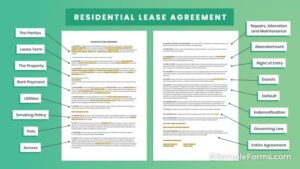
Welcome to the magical world of Best debt consolidation, where your financial woes can vanish faster than your favorite snack during a binge-watch session! Imagine a life where juggling multiple payments is a thing of the past, and you can finally breathe easy while sipping your coffee instead of sweating over bills. With debt consolidation, you pull all your loans into one manageable package—like a financial burrito that’s easier to digest!
Debt consolidation is not just a fancy term thrown around by financial wizards; it’s a practical solution that lets you combine your debts into a single loan with a lower interest rate. Whether you’re drowning in credit card bills or student loans, this method can help streamline your payments and save you some serious cash. Let’s dive into the various methods and tools available to help you conquer the debt monster once and for all!
Overview of Debt Consolidation

Debt consolidation is like a superhero swooping in to save the day, but instead of a cape, it comes armed with lower interest rates and simpler monthly payments. This financial strategy involves merging multiple debts into a single loan, allowing consumers to manage their finances more effectively and often reducing the total interest paid over time. With the right approach, debt consolidation can transform a tangled web of obligations into a streamlined repayment plan that feels as refreshing as a summer breeze.Understanding the various methods of debt consolidation is essential for anyone looking to regain control of their financial life.
Consumers can choose from options such as securing a debt consolidation loan, utilizing home equity, or even enrolling in a debt management program. Each method comes with its own set of benefits and considerations, ensuring that there’s a solution for nearly everyone drowning in the sea of debt.
Methods of Debt Consolidation
Navigating the different methods of debt consolidation is crucial for finding the right fit for your financial situation. Below are some of the most popular options, each with its unique flair:
- Debt Consolidation Loans: These loans provide a lump sum to pay off multiple debts at once, leaving you with just one monthly payment. It’s like trading in your old car for a shiny new model—everything’s under one hood!
- Home Equity Loans: This option allows homeowners to borrow against their home’s equity. It’s a bit like using your prized possessions as collateral to secure a loan, but remember: your home is not a piggy bank.
- Credit Card Balance Transfers: Transferring balances to a card with a lower interest rate can save money on interest. Just be careful not to max out that shiny new card; it’s not an invitation to go on a shopping spree!
- Debt Management Programs: Working with a credit counseling agency can help create a plan to pay off your debt. They’re like the personal trainers of the financial world, whipping your budget into shape.
“Debt consolidation can reduce your monthly payments and make managing your debt less stressful; it’s like turning chaos into calm!”
Real-life scenarios illustrate how debt consolidation can be an effective solution. Take Joe, who juggled three credit cards, a personal loan, and a car payment, all with high-interest rates. After seeking a debt consolidation loan, Joe combined all his debts into one, slashing his total monthly payment and freeing up cash for other expenses—like finally taking that long-awaited vacation! Similarly, Sarah, an empty-nester, used her home equity to consolidate her debts, allowing her to pay off her obligations while keeping her financial future secure.
In both cases, these consumers transformed their financial lives by embracing the power of debt consolidation.
Financial Tools for Debt Management

Managing debt can be like juggling flaming swords while riding a unicycle on a tightrope—exciting for some but downright terrifying for most. Fear not, brave debtors! The world of financial tools is here to save the day, or at least help you manage your balance sheet without setting your hair on fire. In this section, we’ll explore various tools and resources that will help you navigate the turbulent waters of debt management and consolidation, ensuring you stay afloat and perhaps even enjoy the view along the way!
Tools and Resources for Debt Management
The right financial tools can transform your approach to managing debt from a chaotic circus act to a well-orchestrated symphony. Below are some essential tools that can help you effectively consolidate and manage your debt:
- Debt Management Software: Powerful applications like Mint and YNAB (You Need A Budget) can help you track your expenses, set budgets, and visualize your debt repayment progress. Think of this software as your trusty sidekick, always ready to assist you on your financial quest.
- Debt Snowball Calculator: The debt snowball method is a strategy that focuses on paying off your smallest debts first, building momentum as you go. Online calculators can help you plan your repayment schedule and see the snowball effect in action—like watching a tiny snowball turn into an avalanche!
- Mobile Apps for Budgeting: Apps such as PocketGuard and GoodBudget help you manage your day-to-day finances. They’re like friendly financial advisors living in your pocket, reminding you when it’s time to cut back on those overpriced lattes.
- Credit Counseling Services: Nonprofit organizations offer credit counseling to help you understand your financial situation, create a budget, and develop a repayment plan. They’re like the wise sages of the financial realm, guiding you through tough times.
Role of Credit Counseling Services
Credit counseling services are crucial in the journey of debt management. These organizations provide people with debt relief strategies and support that can feel like the warm hug you didn’t know you needed. Specifically, credit counseling services help consumers:
- Assess their financial situation: Counselors help you analyze your income, expenses, and debts. They will help you see the bigger picture, and you may find that your financial landscape is not as bleak as it seems.
- Create a budget: With expert advice, you can develop a realistic budget that aligns with your goals. It’s like crafting a delicious recipe for financial success!
- Develop a debt repayment plan: Credit counselors can help you prioritize your debts and create a manageable repayment schedule, helping you strategically tackle each debt like a boss.
- Negotiate with creditors: Some credit counseling services may negotiate lower interest rates or payment plans with your creditors, which feels like having a superhero in your corner ready to do battle on your behalf!
Comparison of Debt Consolidation Loans
When considering debt consolidation loans, it’s essential to compare interest rates and terms to find the best fit for your financial situation. Below is a comparison table highlighting several popular debt consolidation loan options and their interest rates:
| Loan Provider | Interest Rate Range | Loan Amount | Loan Term |
|---|---|---|---|
| SoFi | 5.99% – 18.85% | $5,000 – $100,000 | 2 – 7 years |
| Marcus by Goldman Sachs | 6.99% – 19.99% | $3,500 – $40,000 | 3 – 6 years |
| Discover | 6.99% – 24.99% | $2,500 – $35,000 | 3 – 7 years |
| LightStream | 3.99% – 19.99% | $5,000 – $100,000 | 2 – 12 years |
Feel free to use this table to find a loan that suits your needs while avoiding interest rates that make you feel like you’re being charged for a luxury yacht instead of a simple vessel!
Strategies for Effective Debt Relief
When it comes to navigating the choppy waters of debt, it’s essential to have a solid game plan. Think of debt relief strategies as your trusty life jacket, helping you stay afloat while you chart a course to financial freedom. The good news? There are plenty of effective ways to consolidate your debts, improve your credit score, and even leverage your home equity in the process.
So, let’s dive in!
Implementing Debt Consolidation
Debt consolidation can be the golden ticket to managing your financial woes. By combining multiple debts into one manageable payment, you not only simplify your life but may also snag a lower interest rate. Here are a few strategies to consider:
- Balance Transfer Credit Cards: These cards often come with introductory 0% APR offers, allowing you to transfer high-interest debt and save on interest while paying it off.
- Personal Loans: Securing a personal loan with a lower interest rate to pay off existing debts can be a smart move. Just ensure your new monthly payment fits within your budget.
- Debt Management Plans: Working with a credit counseling agency can help you create a structured repayment plan negotiated with your creditors.
- Home Equity Loans: Tapping into your home equity can provide funds to pay off high-interest debts, but tread carefully—your house is on the line!
Improving Credit Scores While Managing Consolidated Debts
Managing your consolidated debts with an eye on improving your credit score is like trying to juggle flaming torches while riding a unicycle—challenging, but oh-so-rewarding! Here are some tips to keep your credit score on the up and up while you’re at it:
- Make Timely Payments: Consistently paying your bills on time is crucial. Think of it as feeding your credit score a steady diet of positive nutrients.
- Keep Credit Utilization Low: Aim to use less than 30% of your available credit to show lenders you’re a responsible borrower.
- Avoid New Hard Inquiries: Each time you apply for new credit, a hard inquiry is made, which can temporarily ding your score. Stick to your consolidation efforts for a while.
- Monitor Your Credit Report: Regularly check your credit report for errors. If you find inaccuracies, dispute them. It’s like finding a hidden treasure in a sea of paperwork!
Using Home Equity Loans Wisely
Home equity loans can be a double-edged sword: they can help you consolidate debt but may lead to potential pitfalls if mismanaged. By using the equity in your home smartly, you can achieve debt relief, but here’s how to do it responsibly:
- Understand Your Equity: Before you jump in, know how much equity you have. This is typically the difference between your home’s market value and what you owe on your mortgage.
- Compare Loan Options: Shop around for the best rates and terms. Some lenders might tempt you with shiny offers, but don’t fall for the sparkles without checking their credibility.
- Have a Repayment Plan: Use your equity loan to pay off high-interest debts and create a solid plan to manage the monthly payments. The last thing you want is to swap one set of problems for another!
- Consider the Risks: Remember, your home is collateral, so if you can’t make payments, you could lose your home. Treat this tool with respect, or it might just bite back!
Final Wrap-Up
In conclusion, the journey through Best debt consolidation is like finding the treasure at the end of a winding path. With the right strategies and tools, you can transform your financial landscape from a chaotic jungle into a serene oasis. Remember, whether it’s through a home equity loan or credit counseling, taking control of your debt is not just possible—it’s your ticket to a stress-free tomorrow.
Now go forth, brave financial adventurer, and claim your peace of mind!
FAQ Overview
What is debt consolidation?
Debt consolidation is the process of combining multiple debts into a single loan, often with a lower interest rate, to simplify payments and reduce the financial burden.
How does debt consolidation affect my credit score?
Initially, debt consolidation may cause a slight dip in your credit score, but over time, if managed well, it can improve your credit by lowering your credit utilization and making payments more manageable.
Can anyone qualify for debt consolidation?
While many people can qualify for debt consolidation, eligibility can depend on factors like credit score, income, and the types of debt involved.
What are the risks of debt consolidation?
Risks include the potential for increased debt if you continue to use credit cards while consolidating, as well as fees associated with consolidation loans that can add to your total debt.
Is debt consolidation the same as debt settlement?
No, debt consolidation combines debts into a single payment, while debt settlement involves negotiating with creditors to reduce the total amount owed.





